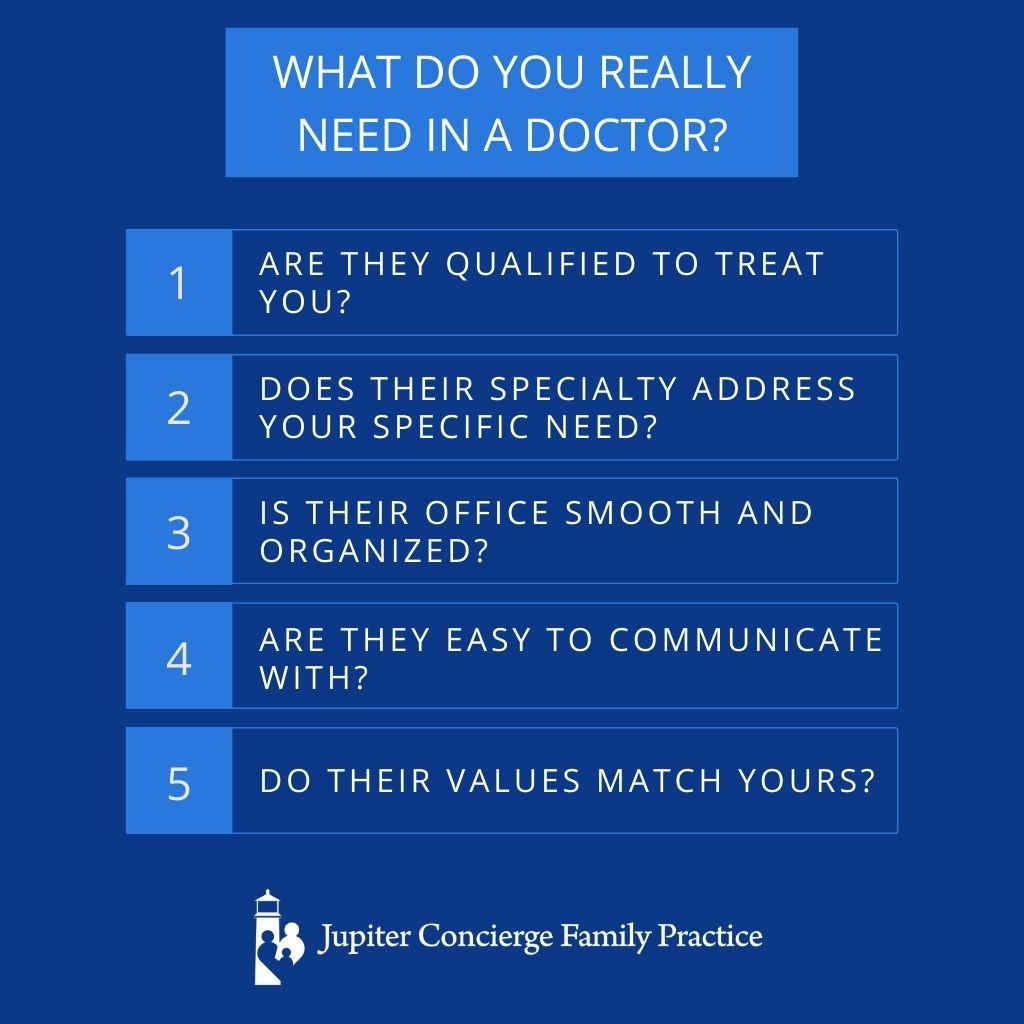 If you’re having a specific health problem, finding a specialist to help can be daunting. How do you know what makes a good doctor and whether you’ve found the right one for your needs?
If you’re having a specific health problem, finding a specialist to help can be daunting. How do you know what makes a good doctor and whether you’ve found the right one for your needs?
When you’re already not feeling well, searching for the right specialist to address your problem can be draining.
Your primary care physician can be a valuable resource to point you in the right direction when you need extra care. Today, we’ll demystify what to look for in a specialist so you and your primary care physician can find the right fit.
What Kind of Doctor Do You Need?
When a patient tells me they need to see a specialist, I don’t give them a name straightaway. Instead, I ask why they think they need to see a specialist.
This isn’t because I don’t believe my patients. Rather, it helps me see if there’s a deeper problem, and then allows me to recommend the right type of specialist. Patients don’t know what they don’t know, and finding the kind of doctor they really need can take a little investigation.
Let’s say my patient “Mr. Jones” asks me for a good dentist. When I ask about his issues, he tells me he gets toothaches when he exercises. In this case, Mr. Jones may not have a tooth problem; he has exertional pain. Mr. Jones may very well need a referral to a specialist — a heart specialist.
Once we’ve arrived at the fact that a patient does, in fact, need a specialist, there’s still the issue of finding the right one. Here’s my five-question checklist I use when scoping out and referring to specialists. I hope it can help you determine what makes a good doctor for your situation!
What Makes a Good Doctor for Specialized Care?
1. Are they qualified to treat you?
Competency is the first box I check prior to recommending any specialist. The great majority of doctors — 95 to 99% — are going to be competent. But it’s still important to do your due diligence, and here are things to look for:
- Board Certification: Make sure they are board-certified physicians.
- Training Credentials: What medical school did they complete and where did they do their post-medical school residency?
- Hospital Privileges: Where does the specialist have hospital privileges? This is important for continuity of care.
- Insurance: This isn’t a qualification of competence, but if the specialist is out-of-network, that may be a deal-breaker for you, the patient. That said, some physicians who don’t accept insurance are able to spend more time with you and provide a higher level of individual care.
2. Does their specialty address your specific need?
Specialists tend to have their own areas of expertise within their discipline. Certain orthopedists, for example, may work only on hips and knees, while others specialize in hands and elbows. All are orthopedists, but the best fit depends on your specific case. Your primary care physician should be able to help you discern which practice best suits your individual needs.
3. Is their office smooth and organized?
The way an office is run — whether it’s systematic or chaotic — is apparent from the beginning. Can you get through to schedule an appointment? Is the scheduling process challenging? How long does it take to get an appointment?
When you arrive at your appointment, are you going to be waiting for hours? Your time is valuable. If an office is chaotic, I recommend finding one that isn’t. The longer you wait for an appointment, the harder it is to get comfortable.
4. Are they easy to communicate with?
A physician can be incredibly skilled and competent, but if they can’t communicate well, that value is diminished. You must feel comfortable calling them to ask questions when side effects or problems occur. You also need to trust them.
How long, for example, does it take them to interrupt you? Do they let you talk about your concerns? You’ve likely waited weeks for the appointment and possibly 30 minutes in the waiting room. If you’re being cut off 10 seconds into expressing concerns, this might not be the best fit, and you likely won’t feel comfortable calling them later with concerns.
The relationship should include you having and understanding information about your health. It should also include an action plan dictated by your diagnosis and treatment. Communication builds trust and allows the doctor to be valuable for you.
There’s another aspect of communication I consider as well. How well will the specialist communicate with your primary care physician? Your primary care physician needs to get and share records with the specialist’s office. Strong inter-practice communication will be an influence for good in your health.
5. Do their values match yours?
People look for different things in their medical team. Some patients want “a pill for an ill,” while others are amenable to lifestyle changes. Make sure your approach to health is a match with the specialist’s. If you can’t find information online, call the practice and ask about their approach.
If You’re Looking for a Good Doctor, Just Ask
Getting a new doctor is already uncomfortable, especially if it’s because you’re venturing into new medical territory. Don’t trust your luck to chance or a shiny webpage when selecting a specialist. Ask around.
Ask friends and family for recommendations. They know you and what you like. If they have prior experience with a certain physician and their office, they can give you an inside perspective. Ask your primary care physician for their take on local specialists; they’ll have their own criteria for what makes a good doctor. And, finally, ask questions of the office staff at the practices you’re scoping out.
Your time and health are worth protecting.

